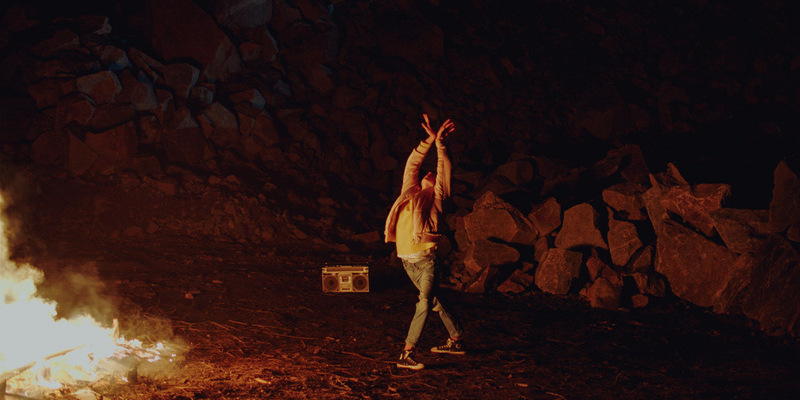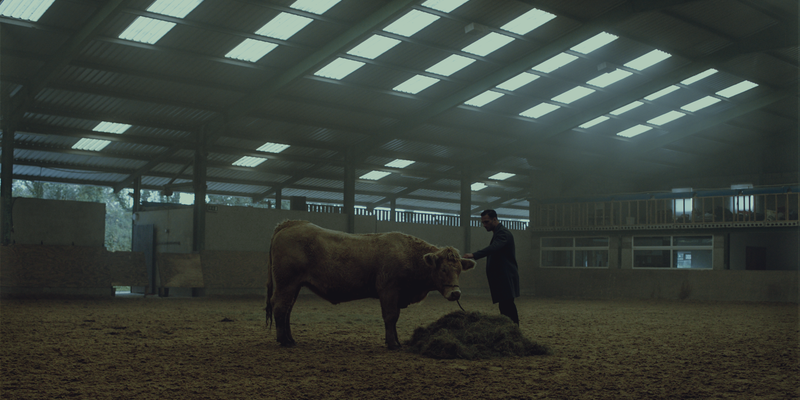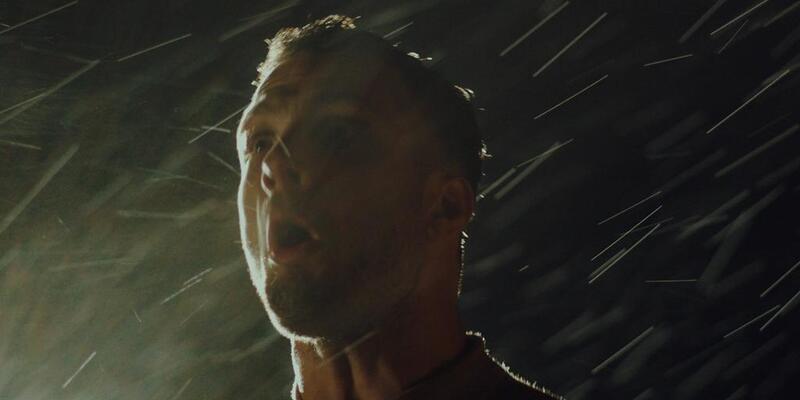
Review by
Eric Hillis
Directed by: Antonia Campbell-Hughes
Starring: Cosmo Jarvis, Antonia Campbell-Hughes, Rhys Mannion, Keith McErlean,
Claes Bang, Mark O'Halloran

With her debut as writer/director, actress
Antonia Campbell-Hughes throws a lot of ideas into the stew. Her
film tackles the issue of identity in a two-pronged manner, exploring
both national identity and sexual identity. The two often stumble over
one another and at times the film's points seem obtuse, but thanks to a
committed cast and some impressive atmosphere established by
Campbell-Hughes and cinematographer Piers McGrail, it's always
watchable.

Cosmo Jarvis continues his convincing bid to snatch Tom Hardy's
title of "The British Brando." He plays Hamish, a sort of hulking
English man-child who visits his late mother's native hometown in rural
Ireland following the death of his aunt. While driving down a dark
country road late at night, he slams into an oncoming car, killing the
teenage driver of the other vehicle. When Hamish leaves hospital, he
decides to stay in Ireland for a while. Hearing stories of his mother
from the locals, he begins to question the narrative his father (Claes Bang) has been spinning all his life regarding the true nature of his
mother. Hamish begins to feel a kinship with his wind-beaten and
rain-soaked ancestral land.
When Hamish is approached by the teenaged Evan (Rhys Mannion), a
passenger in the other car who survived the crash, the two begin hanging
out. They share a curious relationship, partly homoerotic, partly
sinister. It's never clear just what Evan's intentions are towards the
older Englishman. He appears to be either leading Hamish to his doom or
to some form of enlightenment, or perhaps both. Lurking around the
perimeter of the narrative is the dead boy's mother (Campbell-Hughes),
though nothing is really made of this subplot.

The two central ideas of Campbell-Hughes' film never quite coalesce
into a satisfyingly coherent narrative. Hamish's reconnection with his
ancestral homeland never really feels like anything more than the
misty-eyed feeling a lot of British and American tourists get when they
visit Ireland. More compelling is Hamish's relationship with Evan. The
older man is clearly seduced by the teenage boy, but it's left ambiguous
as to whether his reasons for holding back are due to his own sexual
confusion or the age gap.
Neither plotline resolves itself in a rewarding manner, suggesting
Campbell-Hughes may require some more practice on the writing side. As a
director however she appears to have arrived fully formed. With DoP
McGrail she captures the eeriness of the North West of Ireland,
exploiting its vast empty spaces to chilly effect, the characters often
reduced to dots on a harsh landscape.

It's Jarvis's performance that truly keeps
It Is In Us All afloat though. His physicality tells us a
lot about his character's background without having to indulge in
expository speeches. He stands with the rigid stiffness of someone
schooled at a military academy, and he looks down his nose at everyone
he meets with the air of a peasant's landlord. His interactions with his
father suggest not so much a father/son relationship but something
closer to that between Frankenstein and his monster. Like the monster of
Shelley's tale, the more Hamish learns of his origins, the more he
rebels. Campbell-Hughes' script may be clunky but her filmmaking is
alive.


